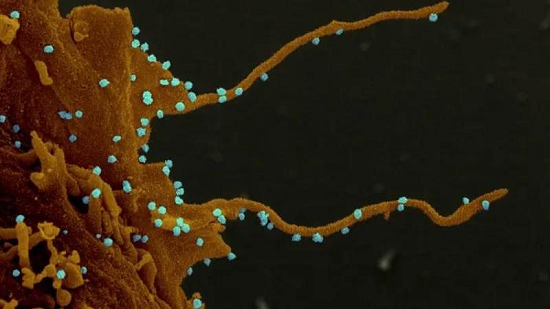Antibiotic-resistant bacteria may be hiding in some leafy greens, warn researchers
08/05/2020 / By Virgilio Marin

A study presented at the American Society for Microbiology conference has warned that plant foods can carry antibiotic-resistant bacteria, or superbugs. In particular, hard-to-wash vegetables such as lettuce may be hiding these microorganisms.
According to the Centers for Disease Control and Prevention (CDC), about 20 percent of the two million annual superbug infections are linked to agriculture. However, this estimate only accounts for people who directly acquired the infection from meat. Research on plant food and how they can transmit superbugs is lacking.
“Our findings highlight the importance of tackling foodborne antibiotic-resistance from a complete food chain perspective that includes plant-foods in addition to meat,” said Marlène Maeusli, the lead author of the study.
How superbugs spread to leafy greens
Superbugs are a type of bacteria that developed the ability to survive or grow despite certain antibiotics. Taking antibiotics in small amounts or when there is no infection increases the likelihood of bacteria developing antibiotic resistance.
In poultry, for example, animals are administered with antibiotics to hasten their growth, some of which are also used to treat human diseases. In turn, constant exposure to antibiotics can lead to resistant bacteria that can spread when animals are slaughtered and processed.
Furthermore, animal waste can spread superbugs in the surrounding environment. This leads to crops and other plant foods being contaminated through contact with soil, water or fertilizer. Humans can then acquire these superbugs by ingesting contaminated food and water.
Plant foods, especially those that are hard to clean, are particularly good conveyors of superbugs. They are eaten raw and their grooves and folds make it easy for bacteria to withstand disinfection. And when a person is infected, available antibiotics in the market may not be effective in treating the infection caused by resistant bacteria. (Related: A natural treatment for superbugs, thanks to traditional remedies from Cameroon.)
Superbugs can multiply in host without any symptoms
In the current study, the researchers examined superbugs in lettuce and what happens after they are ingested. They created a lettuce-mouse model system that mirrors the consumption of superbugs with plant foods. They grew lettuce and exposed them to antibiotic-resistant E. coli. Then, they fed the lettuce to mice that had been taking antibiotic treatment for four days.
After analyzing stool samples from the mice, they observed that superbugs can take root and proliferate silently inside the host — what experts call colonization. This means that a person may already be carrying resistant bacteria without exhibiting symptoms or experiencing a full-blown infection. Hence, the spread of antibiotic-resistant superbugs from plants to humans is different from outbreaks of diarrheal illnesses that occur soon after eating contaminated vegetables.
Furthermore, the team administered antacids and antibiotics to see how these will affect the passage of the superbugs. They observed that the bacteria’s ability to hide in the rodents’ intestines remained unchanged if only one type of antibiotic is taken. On the other hand, adding another antibiotic yielded stable gut colonization after ingestion. They also noted that ingesting the bacteria with food and taking antacids before ingestion changed colonization.
This demonstrates that the bacteria’s ability to colonize the gut after ingestion differs depending on various host and bacterial factors. Seeking those factors is thus important, as it allows experts to know which ones increase and which ones lower the risk of colonization.
Moreover, the researchers stress the inextricability of the environment and human health.
“We come across people saying because they’re vegetarian now they’re safe,” said Maeusli. “What we’re trying to say is that everyone, regardless of whether you’re a vegetarian, you’re still connected to the larger food chain.”
Learn more about superbugs and how they spread at Superbugs.news.
Sources include:
Tagged Under: antibiotic resistance, Contaminated Food, contaminated water, harmful medicine, Leafy greens, Poultry, prescription drugs/medicine, superbugs, vegetables


















